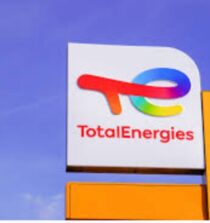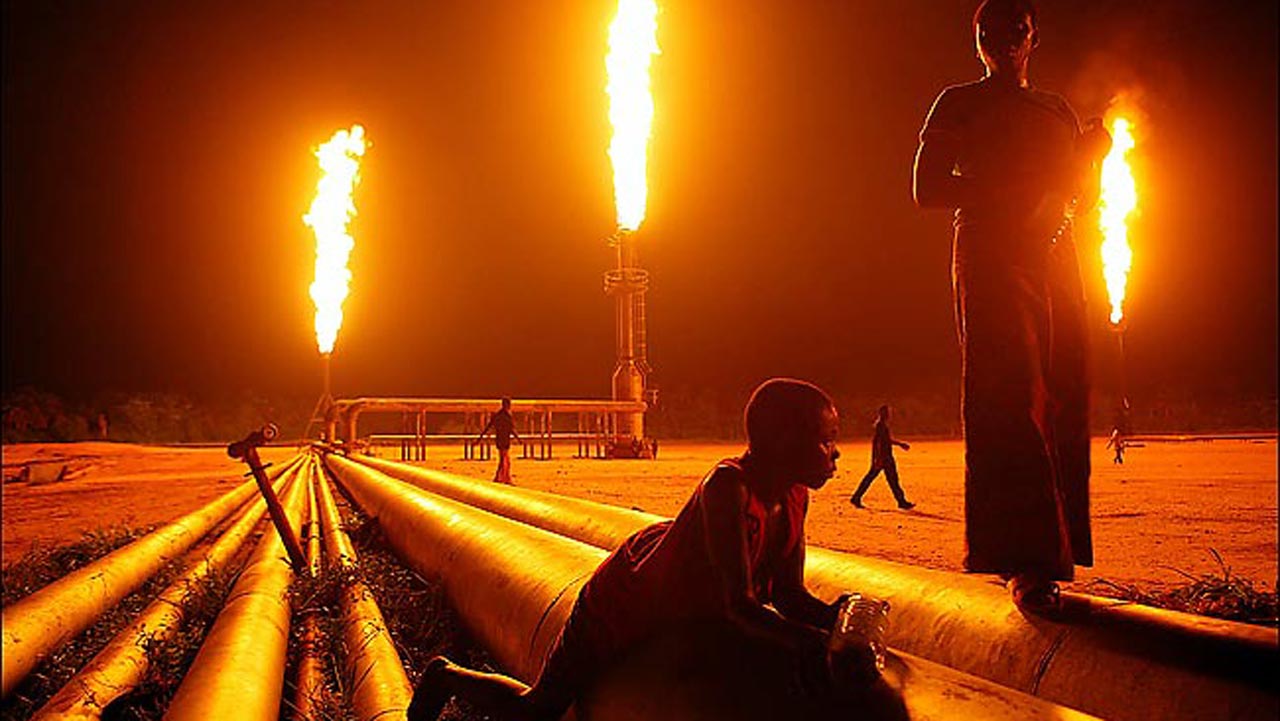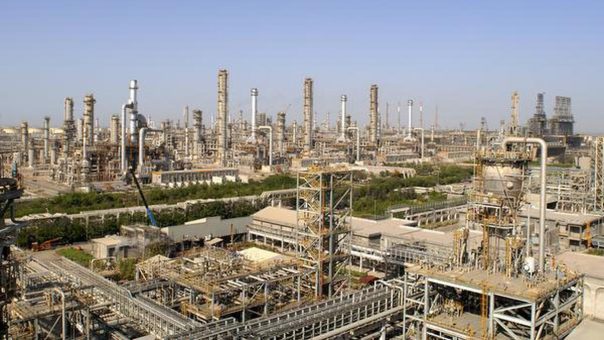Energy Worth with Agency Report
Experts have cautioned against undue optimism over the three-point strategy unfolded by the Federal Government to end gas flare by 2020, insisting that elusive strategies and other inherent challenges, would ensure that the desire remains a pipe dream.
To further illustrate their pessimism, they say there is no way the strategy would be achieved, considering lax legislative backing and weak regulatory framework, as well as, low incentives.
Nigeria is one of the world’s top gas flaring nations and the Federal Government has severally promised to harness and market the nation’s gas resources to reduce the negative impact gas flare has on oil-producing communities over the years without success.
But the Group Managing Director, Nigerian National Petroleum Corporation (NNPC), Maikanti Baru, who last Thursday announced a three-point strategy to contain the menace in 2020.
According to experts who queried government’s optimism, even if the challenges were addressed, setting a two-year deadline was a mere political statement and should not have come from a personality who understands how the industry and Nigeria’s political landscape operate.
The strategies announced by Baru, include, non-submission of Field Development Plans (FDPs) to the industry regulator, the Department of Petroleum Resources (DPR), without a viable and executable gas utilisation plan; steady reduction of existing flares through a combination of targeted policy interventions in the Gas Master-plan, as well as, re-invigoration of the flare penalty through the 2016 Nigeria Gas Flare Commercialisation Programme (NGFCP), and through legislation, that is, place ban on gas flaring via the recent Flare Gas (Prevention of Waste and Pollution) Regulations 2018.
Though the NNPC is key to ending gas flare in the country, considering that the gas being flared basically comes from joint venture activities, which the NNPC holds in trust for the state, President of Nigerian Association for Energy Economics (NAEE), Prof. Wumi Iledare, said incentives and legislative backing as well as infrastructure for ending gas flaring are currently unavailable.
Indeed, since the country still looks forward to the PIGB coming into effect, and the uncertainties that may emerge as the country prepares for a major election, Iledare said 2030, which was earlier set could be more feasible.
“We have the policy; we have the commercial entities that have bought into it, and we have the National Assembly that is trying to pass a law to make sure that there are investments to harness gas for economic growth and development. But it is not possible in two years.
“If it takes years to get the bill together before they can even begin to prepare for the implementation, I think 2020 is just not realistic. Passing the bill that will make the incentives backed by the law may not come before the end of the year. How can you put together, the equipment and the projects that will bring an end to gas flare within one year? The incentives have not started to work and there is no law backing the incentives. So, there must be an act before you can set policies in terms of taxes and royalties,” Iledare said.
Former President, Nigeria Association of Petroleum Explorationists (NAPE), and Chief Executive Officer, Degeconek (Nigeria) Limited, Abiodun Adesanya, corroborated Iledare’s view points, adding that fines attached to gas flaring were not enough deterrent, thereby making it attractive to flare than harness.
Flared gas recently rose from 244.84 billion Standard Cubic Feet (SCF) in 2016, to 287.59 billion SCF in 2017, while gas flare penalty stands at N10/Mscf (equivalent to $0.03).
Adesanya also insisted that DPR lack the capacity to properly monitor the excesses of international oil companies, who continue to flare gas even though the activities have been outlawed in developed communities, where the companies are headquartered.
He urged government to outsource monitoring of the excesses to local communities in the Niger Delta as a way of empowering the region, and getting the people involved and educated on why strict monitoring is necessary.
If gas flaring must stop, Adesanya said, “Government has to be serious; agencies of government have to be committed and other stakeholders in the oil industry must be sincere.”
For the Chairman, International Energy Services (IES) Ltd, Dr Diran Fawibe, it would be commendable if an end is brought to flaring in two years, but oil production may have to stop as well.
Fawibe said: “I am not too optimistic that in two years we can end gas flaring. But if we are prepared to pay the price in terms of cost of infrastructure to monitise the gas, it will be a very welcome development. When you are not flaring and not monitising gas, and you have to produce gas in association with oil, there lies the main problem. The problem we have had over time has been the infrastructure for gas.”
He added: “Some of the fields where gas is flared in the Niger Delta are small and when you look at the price of laying gas pipeline, it is uneconomic. Some are also joint venture fields and if the NNPC is not contributing, the oil companies won’t feel obliged to pay NNPC’s share of the cost. This constitute a major problem,” Fawibe stated.
On their part, the National Coalition on Gas Flaring and Oil Spills in the Niger Delta (NACGOND), and Centre for Peace Development and Children Welfare are united in their submission that while the Federal Government continues to dilly-dally over ending gas flare, people of Niger Delta are faced with catastrophic health challenges.
NACGOND Coordinator, Eddy Obi, who told The Guardian that private and corporate greed will thwart government’s initiative, argued that very little has been done in terms of infrastructural development to facilitate the realisation of the stoppage.
According to him, stakeholders in the Niger Delta want to see government demonstrate commitment to end gas flare beyond mere rhetorics.
“Gas flare has continued because of private interest and corporate greed. Those involved don’t want to put in the kind of money that will be required to get the infrastructure set up to capture the gas and utilise it for other things. It is by far cheaper to flare and even the fines the federal government is supposed to get from flaring gas, evidence shows they are not getting that. Even the fine for gas flaring is negligible and laughable.” he said.
Obi added that constant gas flaring and the noise that accompany oil exploration activities are causing wildlife and aquatic species to be on the decline, adding that the reproduction cycles of wildlife and aquatic species have continued to be dented by the fact that they do not have the required hours of darkness and daylight, which is what makes plant and animals produce the way they should.
“Particulate matters of all kinds are being emitted into the atmosphere when gas is flared, and of course, when people breathe them health catastrophy looms throughout the Niger Delta, particularly in those areas where gases have been flared for a long time. Definitely, there is drastic environmental damage being done by our continued flaring of gas. I think they are just kicking the can down the road, hoping that it will keep rolling down the road, but one day, it will catch up because we will have a huge health bill to deal with in time to come,” he added.
On his part, the Coordinator Centre for Peace Development and Children Welfare, Mr. Inemo Samiama, noted that the Federal Government has made several promises and even fixed dates to end gas flare, but as such dates draw close, it moves the goalpost, and has never kept its word about gas flaring.
“We welcome this initiative, but forgive us for being a bit sceptical because of past experiences. We have to believe that the government does have the intention to stop gas flaring; we want the government to stop gas flaring because it is killing people in the Niger Delta; it is contributing to the reduction of life expectancy in the Niger Delta. The Niger Delta should not be punished for producing the resources that keep this country going.
“We hope that this time around, the government is serious; we hope that this time around, it would not move the goalpost, but keep to its words. That is all we want. We want them to stop gas flaring in the Niger Delta, but they are not reliable. Gas flaring has been outdated in a lot of countries,” he added.








